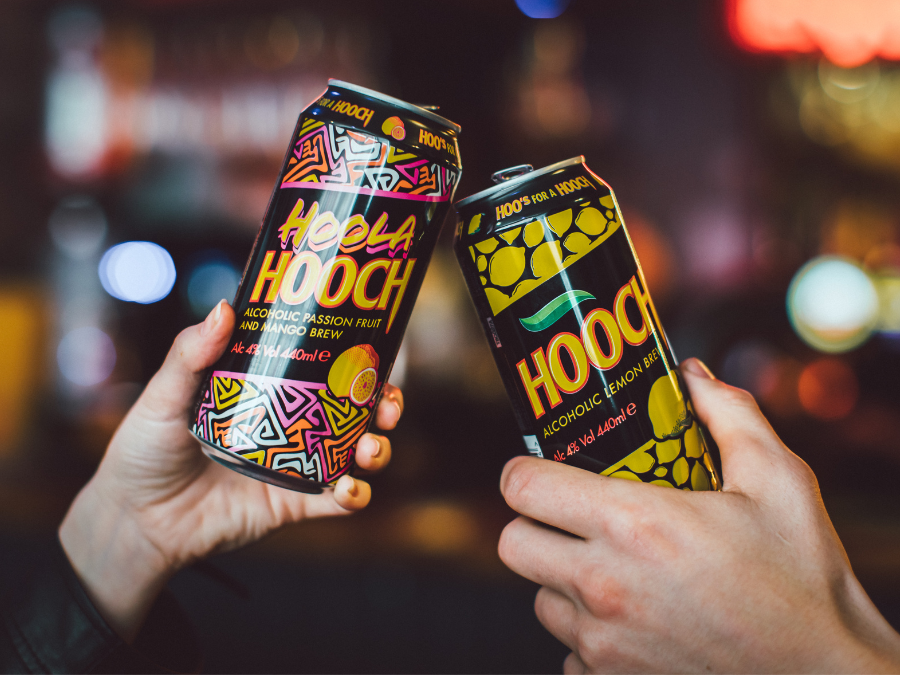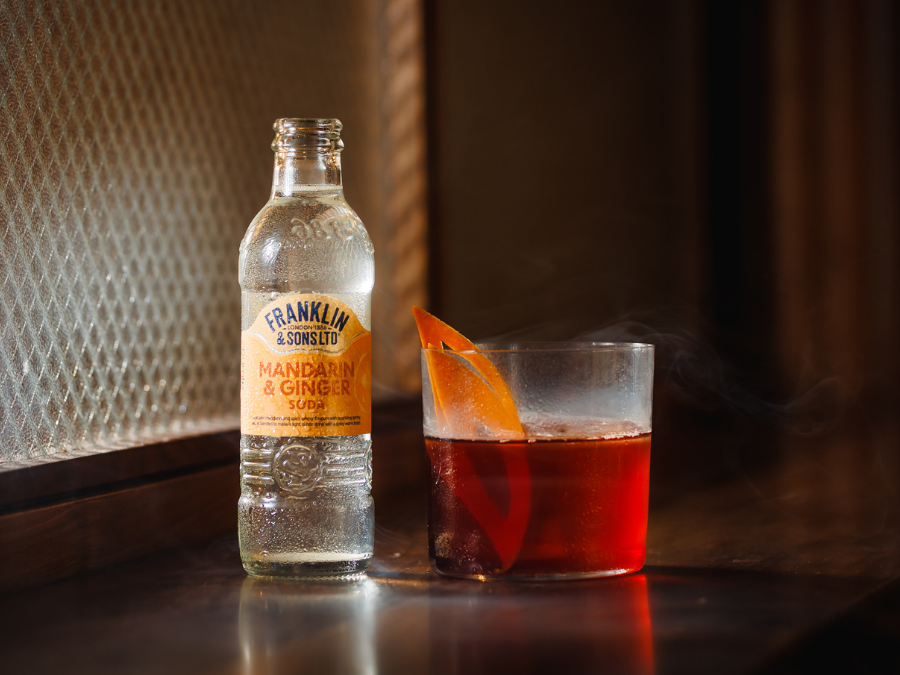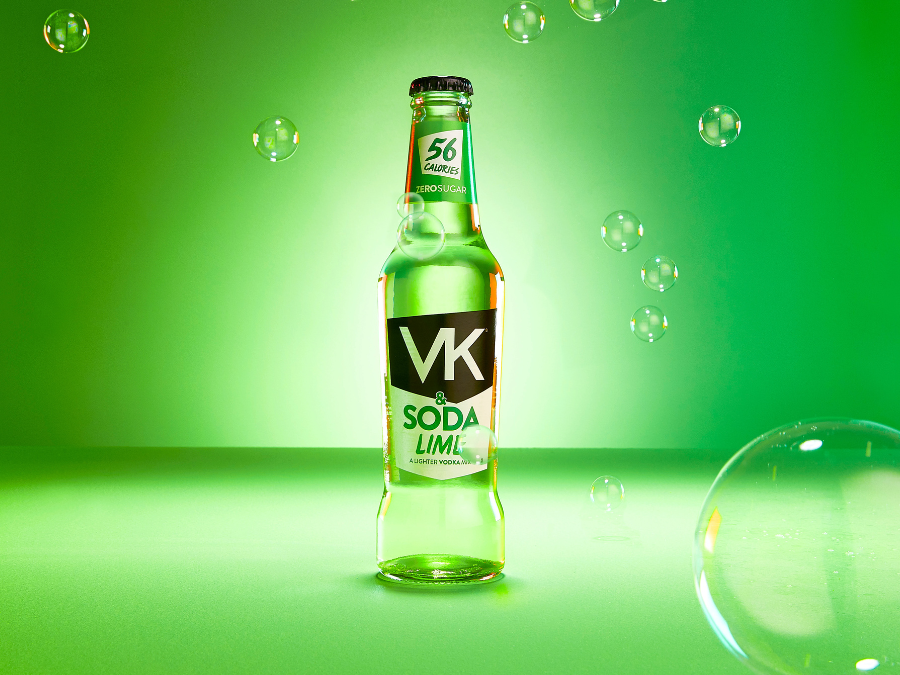
UK ready-to-drink specialist Global Brands has been around the block a few times. Founded by entrepreneur Steve Perez in 1997, the Chesterfield-based firm has been making and marketing pre-mixed spirits in the UK since the first wave of so-called “alcopops” hit the market around the turn of the millennium. Today, its 15-strong roster includes the UK’s largest on-premise RTD in VK, mixer and soft drinks brand Franklin & Sons and schnapps line Corky’s.
In 2012, the company revived and relaunched Molson Coors’ defunct Hooch brand, and successfully turned it into a mainstream proposition with listings in every UK major supermarket retailer. Last month, the company struck a deal to acquire Hooch, as well as two other RTD brands it already licensed from the Carling brewer.
Just Drinks sat down with Perez to discuss the deal, how the group is responding to premiumisation trends in RTDs, and the threats posed by impending deposit return schemes (DRS) in Scotland and the rest of the UK.
Just Drinks: What prompted Global Brands to seek to change the existing licensing agreement with the three brands you acquired from Molson Coors?
Global Brands CEO Steve Perez: We’d known Hooch for some time. At one point it was VK’s biggest competitor until [Molson] Coors decided to take it off the market for around four or five years. When they were about to take Reef off the market around eight years ago we got in touch with them and agreed to license initially Reef and ultimately Hooch as well.
Initially, we had a very loose agreement but, as the brands became more successful, we became a little bit more restricted in terms of what we could do with them. As an independent business, we are really quite innovative but it was hard for Molson Coors to allow us that kind of latitude we really wanted for the brands.
The problem also with licensing a brand is that you’re caught between two stools. If the brand is unsuccessful or doesn’t do well, you’ve got the licence holder asking to improve performance, putting you under pressure. But if it’s doing really well they’ll be thinking “can we sell this to another company?” or “should we bring it back in-house?”. And so that’s a bit of a quandary when you have invested all this money in a brand that the owner could take back at the end of the (quite short) contract. Strong brands are built over decades, over the long term, and, as an independent business, we are always looking at the long term.

US Tariffs are shifting - will you react or anticipate?
Don’t let policy changes catch you off guard. Stay proactive with real-time data and expert analysis.
By GlobalDataJD: How did the purchase come about?
SP: We asked a few times about it [buying the brands] and got quite a firm rebuff, but then in September last year they approached us and asked if we were still interested in purchasing the brands, and then it was just a case of getting the lawyers involved!
JD: Can you confirm any financial details from the transaction?
SP: It was a large, seven-figure sum. A multiple seven-figure sum. With NDAs and all that, I can’t be more specific. It might come out one day because they’ll have to issue their accounts.

JD: What gaps do you presently see in your portfolio, and are you looking primarily to M&A or product innovation to fill them?
SP: We’re always interested in acquisitions. We’ve never played in the cider space, although I’m not necessarily saying that’s something we’ll definitely be doing. What we’re really good at is RTDs; that’s where we very first started and we’re now the biggest supplier of packaged canned cocktails in the UK. The thing about RTD is they can be anything, from a vodka mixed product to a still, high-quality cocktail in a bottle like a negroni. You’ve got so much to play with, whereas in the beer market, for example, you are somewhat limited. It is endless, what you can do in ready-to-drink. We’re now looking at draught solutions, which will be interesting given what is happening with DRS.
JD: Given the shape of your portfolio, how is Global Brands responding to premiumisation trends in the RTD category?
SP: We are in the process of premiumising our offer. Part of our innovation pipeline is going to be bringing out a new range of premium RTD cocktails. We have already got Beviamo which is an Italian-style spritz and this will complement that.
JD: Would it be fair to say that Global Brands volumes currently skew more towards the mainstream end of the category currently?
SP: Yeah, but as you premiumise volumes are going to come down due to price points. We’re looking at 8% abv for the new premium RTD cocktails range, so you’re not going to be selling in the same volume as you would for say, 4%.
JD: What are Global Brands’ annual revenues?
SP: We’ve grown to be a GBP90m (US$108m) business now in terms of annual turnover.
JD: Where are your brands sold outside of the UK and what percentage of your sales is made up by international markets?
SP: We’re around 80% UK-based, with the rest coming from international. Our biggest-selling brand internationally is Franklin & Sons and we have just opened up a US office for the brand as we enter our third year over there. We see the US as key for Franklin & Sons, but there has also been a lot of interest in our RTDs, which I was a little surprised about because there are already a lot of brands in the market over there, and because of the different rules over there RTDs tend to be a lot stronger than in the UK.
Other big markets for Franklin & Sons are the UAE, Italy, Belgium and South Korea.

JD: You recently signed a deal for the distribution rights to Bang Energy in the UK? Tell us about what attracted you to that transaction.
SP: They came to us because they saw what we are really good at; we supply to every major supermarket in the UK, we’ve got fantastic reach with 30 sales people out on the road, our own distribution network.
With most of our brands, we own and do everything, from liquid production to sales and marketing, but this is a pure and straightforward distribution deal. It’s a big brand of scale that connects with the majority of our consumers and retailers. It’s a fast-moving, high-energy brand and although we do have some energy drinks brands already in our portfolio in Kick Energy and Mango Go!, it’s a completely different proposition. I just love the marketing of the brand on social media. They’ve been incredibly successful.
JD: Functionality is a growing trend in beverages. Were Bang Energy’s credentials, especially with its creatine line, in this field part of your desire to bring the brand on board?
SP: There won’t be any creatine in the UK [stock] because, as I’m sure you’ll have seen, there have been some legal disputes there. But, yeah, it’s the Prime [effect] isn’t it? It’s interesting, you go along to our local cash and carry and the energy drinks section has just got bigger and bigger. I think to an extent Red Bull have gotten left behind in a way. It’s the same as it’s always been. There’s room for more functional drinks rather than just a pure caffeine and sugar hit.
JD: Global Brands also recently launched a line of low-calorie vodka and sodas under the VK umbrella. What was the rationale behind that?
SP: Vodka lime and soda is really seltzer for the UK. Actually, if seltzers had called themselves that they might have been more successful. Hence that’s why VK & Soda is going to launch. We’ve done some initial trials and it has been quite successful. It’s something that British drinkers will understand that is fairly light, low in abv, low calories and low in carbohydrates.
JD: How concerned are you by the UK’s gloomy economic outlook, and – in particular – the failure of the on-premise to bounce back from Covid-19?
SP: Yeah, it is really tough for the on-premise right now and going out is going to get more expensive. People are going to do it less frequently. But, when people do go out, they are going to demand better products, better service and that is going to mean more premiumisation.

JD: What does that mean for the future of brands like VK?
SP: Yes, of course, it’s a long-term concern but, having said that, it’s surprised me how resilient we’ve been as the going gets tough more and more brands drop out of the bottom of the market. I was reading data saying that a third of nightclubs have closed since Covid-19 and, well, we certainly haven’t seen a third decline in sales. In fact, recently we have seen some growth in the UK.
I think strong brands will remain, and people will still go out, just maybe less often. And because RTDs are low abv, students will tend to “pre-load” but when they go out and they are in the club they will still want something that is low in strength but still alcoholic. Spirit and mixers are likely to be more expensive as well, and then you have other factors around spiking – the safest drink in a nightclub is something out of a bottle or a can.
JD: How have you been impacted by rising energy costs, particularly around the manufacture of glass, a format in which your portfolio over indexes?
SP: Massively. The cost of glass has doubled since Ukraine, so that is having a big impact. But even plastic and PET has gone up. We’ve had big increases in sugar, distribution costs, and we’ve had to put price increases of an average of 10% in and, frankly, retailers will have to pass these onto consumers.
JD: Have you been minded to seek out alternative production formats, increasing the use of canning, perhaps even draught/bag in box?
SP: Yeah, as I mentioned earlier we’re looking at draught and that is certainly going to be launched in the next few months. It’s going to be interesting with a small pack, particularly with DRS and everything that is happening in Scotland.
JD: Has Global Brands been involved in the conversation around DRS in Scotland?
SP: My team was involved in consultation but a lot of it is yet to be finalised. We still haven’t worked out whether we’re going to charge VAT on it or not, things like that, or do we include it in part of the retail price, or have a ‘plus deposit’ price? It’s going to be an absolute car crash. People will complain that they haven’t got their 20p back, or you’ll get people stealing people’s bins. It’s going to be a mess, and it’s totally unnecessary because I think something like 85% of glass is already recycled.
JD: How damaging do you think DRS proposals are to the drinks industry in their present form?
SP: It’s going to be catastrophic, especially in Scotland. I just think if you look at the government there they have got a vendetta against the drinks business, particularly the alcoholic drinks business. You look at the review on alcohol advertising in Scotland, which, again, is going to have a [negative] impact. I honestly believe it is some sort of backdoor prohibition by the Scottish government because it is going to get increasingly difficult and expensive to buy alcohol.
JD: Do you think we’re increasingly moving closer towards a system where mandatory health warnings like those in the tobacco industry are going to be introduced?
SP: I think quite possibly in Scotland, yes.



